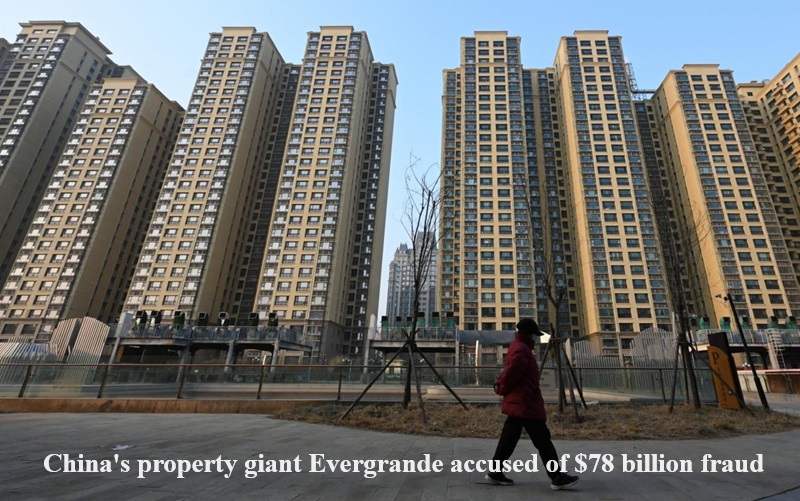
China’s real estate behemoth, Evergrande, and its founder, Hui Ka Yan, find themselves embroiled in a colossal $78 billion fraud scandal.
Reports indicate that allegations of revenue inflation spanning two years have prompted swift regulatory intervention, with the China Securities Regulatory Commission (CSRC) imposing a historic $583.5 million fine on Evergrande’s mainland entity, Hengda Real Estate.
Furthermore, Hui Ka Yan faces the prospect of a lifetime ban from China’s financial markets, marking a dramatic fall from grace for the once-revered tycoon.
The accusations and ensuing penalties levied by the CSRC are rooted in allegations of financial impropriety orchestrated by Hui Ka Yan himself.
The regulatory body contends that Hui instructed Hengda Real Estate to artificially inflate its annual financial results for the years 2019 and 2020, thus embellishing the company’s fiscal standing.
This misconduct has not gone unpunished; Hui Ka Yan, formerly hailed as China’s wealthiest individual, now faces a $6.5 million fine, alongside the ignominy of a lifetime ban.
Evergrande’s chairman, under intensifying scrutiny since September 2023, grapples with mounting legal challenges as investigations into suspected “illegal crimes” continue to unfold.
Despite mounting pressure, Evergrande remains reticent, opting not to address inquiries from media outlets seeking clarification on the unfolding scandal.
Evergrande’s legal entanglements have exacerbated its financial predicament, culminating in a court-ordered liquidation in Hong Kong earlier this year.
This development has cast a pall over the company’s once-impeccable reputation, emblematic of China’s property boom.
The specter of Evergrande’s downfall casts a long shadow, underscoring broader structural challenges within China’s real estate sector.
Hui Ka Yan’s precipitous fall from the zenith of corporate success to the nadir of regulatory scrutiny underscores the gravity of the situation.
The financial reverberations and market turbulence resulting from Evergrande’s scandal extend far beyond the confines of the company’s boardroom, reverberating throughout China’s real estate landscape.
With a staggering $300 billion in debt, Evergrande’s precarious position mirrors a wider trend of financial strain among major property developers.
The repercussions are palpable, with several prominent firms succumbing to the mounting burden of debt obligations amid increasingly stringent regulatory oversight.
Official data paints a grim picture, signaling a 9 percent decline in property investment and a 30 percent drop in new construction starts, exacerbating concerns about the sector’s stability.

Post Your Comments